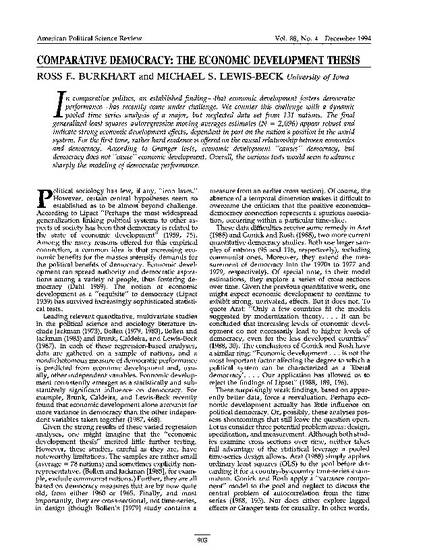
In comparative politics, an established finding--that economic development fosters democratic performance--has recently come under challenge. We counter this challenge with a dynamic pooled time series analysis of a major, but neglected data set from 131 nations. The final generalized least squares-autoregressive moving averages estimates (N = 2,096) appear robust and indicate strong economic development effects, dependent in part on the nation's position in the world system. For the first time, rather hard evidence is offered on the causal relationship between economics and democracy. According to Granger tests, economic development "causes" democracy, but democracy does not "cause" economic development. Overall, the various tests would seem to advance sharply the modeling of democratic performance.
Available at: http://works.bepress.com/michael_lewis_beck/165/
